
“The wisdom and mercy of God in preparing an ordinance for the salvation of the dead. . . . Those Saints who neglect it in behalf of their deceased relatives, do it at the peril of their own salvation.”
| History of the Church, 4:426.
LDS Quotes on Baptisms For The Dead

“The wisdom and mercy of God in preparing an ordinance for the salvation of the dead. . . . Those Saints who neglect it in behalf of their deceased relatives, do it at the peril of their own salvation.”
| History of the Church, 4:426.

“How are [the Saints] to become Saviors on Mount Zion? By building their temples, erecting their baptismal fonts, and going forth and receiving all the ordinances, baptisms, confirmations, washings, anointing, ordinations and sealing powers upon their heads, in behalf of all their progenitors who are dead, and redeem them that they may come forth in the first resurrection and be exalted to thrones of glory with them; and herein is the chain that binds the hearts of the fathers to the children, and the children to the fathers, which fulfills the mission of Elijah.”
| History of the Church, 6:184
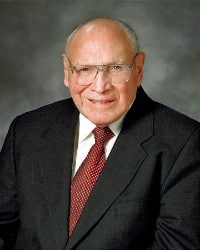
“Whereby all his children, be they alive or dead, might have the privilege of accepting or rejecting the gospel of his beloved Son.”
| Conference Report, April 1945, 69, 71.
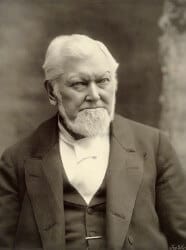
“How did we feel when we first heard [that] the living could be baptized for the dead? We all went to work at it as fast as we had an opportunity, and were baptized for everybody we could think of, without respect to sex. I went and was baptized for all my friends, grandmothers, and aunts, as [well as for] those of the male sex: but how was it? Why, by-and-by, it was revealed, through the servants of the Lord, that females should be baptized for females, and males for males.”
| Journal of Discourses, 5:85
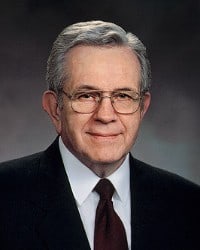
“Here and now then, we move to accomplish the work to which we are assigned. . . . We gather the records of our kindred dead, indeed, the records of the entire human family; and in sacred temples in baptismal fonts designed as those were anciently, we perform these sacred ordinances.”
| “The Redemption of the Dead,” Ensign, November 1975, 99
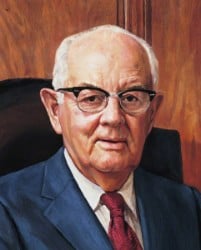
“[The keys] will be given to those who have passed off this stage of action and have received their bodies again. . . . They will be ordained, by those who hold the keys of the resurrection, to go forth and resurrect the Saints, just as we receive the ordinance of baptism then receive the keys of authority to baptize others for the remission of their sins. This is one of the ordinances we can not receive here [on the earth], and there are many more.” (JD, 15:137)
| “Our Great Potential,” Ensign, May 1977

“What a glorious thing it is that we believe and receive the fulness of the gospel as it is preached now and can be baptized for all of our dead friends. . . . Oh, mother, if we are so happy as to have a part in the first resurrection, we shall have our children just as we laid them down in their graves.”
| Sally Carlisle Randall to Betty Carlisle, Nauvoo, April 21, 1844, Church Archives.
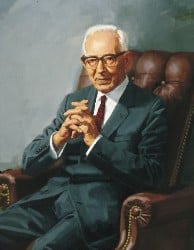
“Through our efforts in their behalf [the dead] their chains of bondage will fall from them, and the darkness surrounding them will clear away, that light may shine upon them and they shall hear in the spirit world of the work that has been done for them by their children here, and will rejoice with you in your performance of these duties.”
| “The Priesthood in Action,” Ensign, November 1992, 48

“Suppose there was a woman named Oohku who lived from 370–320 B.C. in the interior of Borneo. Obviously, she never heard of Jesus Christ or the Judeo-Christian God: she was never baptized, nor did she ever make any institutional or psychological commitment to Christ or the Christian church. She couldn’t have done these things; she was simply born in the wrong place and at the wrong time. Is it right for God to condemn this woman to eternal hell just because she was never able to come to God through Christ? Of course not . . . God is just and loving.”
| “Universalism, Hell, and the Fate of the Ignorant,” Modern Theology 6, no. 2 (January 1990): 176.
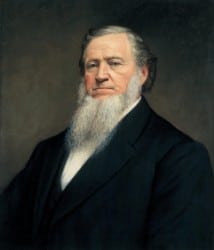
All who have lived on the earth according to the best light they had, and would have received the fullness of the Gospel had it been preached to them, are worthy of a glorious resurrection, and will attain to this by being administered for, in the flesh, by those who have the authority. All others will have a resurrection, and receive a glory, except those who have sinned against the Holy Ghost. It is supposed by this people that we have all the ordinances in our possession for life and salvation, and exaltation, and that we are administering in these ordinances. This is not the case. We are in possession of all the ordinances that can be administered in the flesh; but there are other ordinances and administrations that must be administered beyond this world. I know you would ask what they are. I will mention one. We have not, neither can we receive here, the ordinance and the keys of the resurrection. They will be given to those who have passed off this stage of action and have received their bodies again, as many have already done and many more will. They will be ordained, by those who hold the keys of the resurrection, to go forth and resurrect the Saints just as we receive the ordinance of baptism, then the keys of authority to baptize others for the remission of their sins. This is one of the ordinances we cannot receive here, and there are many more. We hold the authority to dispose of, alter and change the elements; but we have not received authority to organize native element, to even make a spear of grass grow.
| Journal of Discourses, p. 397

The work of remembering one who is dead is a work of the utmost unselfish love. If one wants to make sure that love is completely unselfish, he eliminates every possibility of repayment.
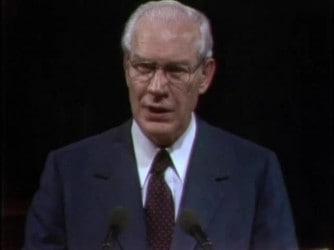
“One of the major missions of the Church is to uniquely identify these individuals who have died and perform the necessary saving ordinances in their behalf, for they cannot do it for themselves. Once these ordinances are performed, if the individual accepts the gospel in the great world of spirits, then this work will be effective.”
| “Moral Values and Rewards,” Ensign, May 1981, 68.
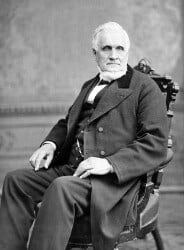
“A man who has not paid his tithing is unfit to be baptized for his dead. … If a man has not faith enough to attend to these little things, he has not faith enough to save himself and his friends.”
| History of the Church, 7:282.

Some years ago, a priest in Central America told me he was studying Latter-day Saint “baptism for deceased persons.” “It does seem just,” the priest said, “that God would offer every person opportunity to receive baptism, no matter when or where they lived, except little children, who ‘are alive in Christ.’ The Apostle Paul,” the priest noted, “speaks of the dead awaiting baptism and resurrection.” Vicarious temple ordinances promise all nations, kindreds, and tongues that no one need “remain a slave of death, of hell, or of the grave.”
| "All Nations, Kindreds, and Tongues"